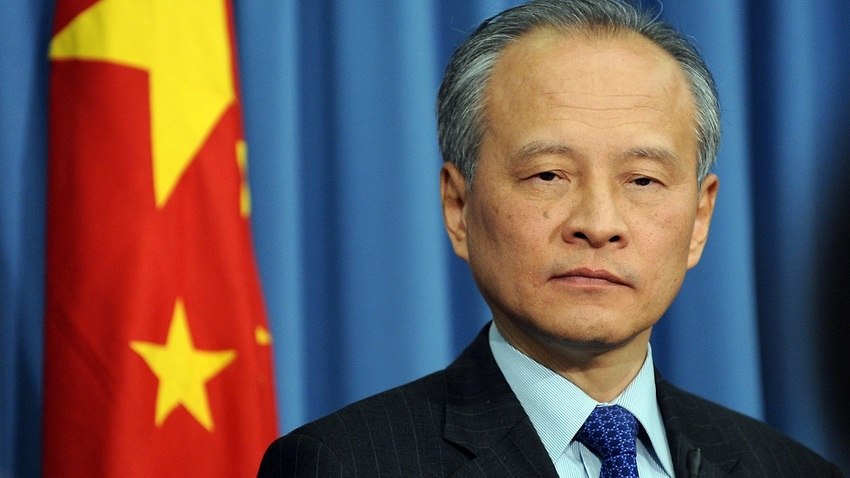
Cui Tiankai, China’s Ambassador to United States
China’s Ambassador to the United States, Mr Cui Tiankai, has said the reason that China will not give foreign journalists access to Tibet is because of Tibet’s high altitude. Cui was speaking to Steve Inskeep, host of National People Radio, on October 3 in the wake of the recently-passed US Congress bill on reciprocal access to Tibet.
The interview covered several topics including trade, understanding and openness between the two nations.
Asked if he will be open to American scholars and journalists who may have controversial views on China and want to visit Tibet, Cui replied, “You see, we are open to American students, professors, journalists or scholars. Of course, for some other places like Tibet because it’s very high altitude and the climate could be very tough there”.
Cui also mentioned that the Chinese government is in the middle of organising a visit to Tibet led by Terry Branstad, the American Ambassador in Beijing.
Inskeep asked Cui about China’s policies in the regions of Tibet and Xinjiang, or east Turkestan, a Muslim majority region in north western China. He questioned Cui about the recent reports of many of the Uyghurs who live there being put in re-education camps; Cui answered that these people are being re-educated to develop new skills to “have a better life”.
The Tibetan Review reported this interview, saying “Cui has refused to either admit or deny the existence of these camps. He has, instead, toed the Chinese government’s line that Uyghurs were being re-educated to ‘learn skills’ and to prevent them from adopting extremist ideologies.”
Inskeep follows up the conversation by asking Cui if he would like to welcome Branstad to Xinjiang.Cui replied that the problem in Xinjiang is nothing to do with altitude, saying that it is terrorism that is causing chaos in the region. Emphasising this point, Cui added that China is “open to the rest of the world” but Xinjiang has issues of violent extremist groups who are trying to “create a situation like ISIS”.




 Print
Print Email
Email